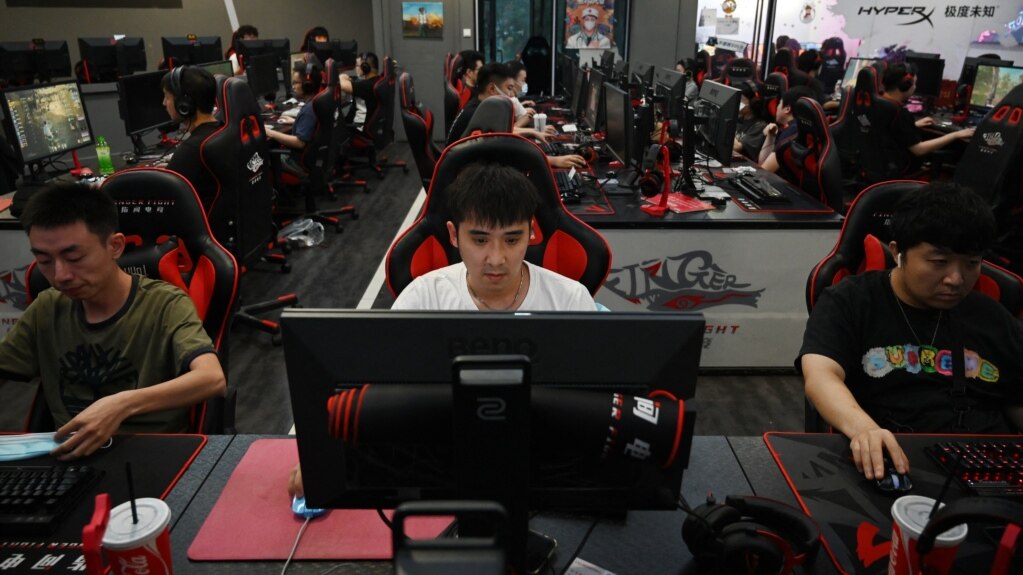China has proposed new rules for online gaming that aim to restrict purchases and limit compulsive playing behaviors.
The guidelines were recently issued by the organization that oversees, or regulates, the country’s gaming industry. It is called the National Press and Publication Administration.
Reuters news agency reported the public will be able to comment on the rules through January 22 before they receive final approval.
The new rules ban companies from offering incentives to people who play video games or make in-game purchases each day. Other restrictions include limits on how often players can add money to online money accounts, called wallets.
The government also warned of the dangers of “irrational” behaviors it says can lead to gaming compulsions. In addition, the regulator brought attention to an existing ban on online game content “that endangers national unity.”
The new rules also call for companies to create warning messages to be sent to users who seem to be showing irrational playing behaviors. And in an effort to protect user privacy, the regulations also require game publishers to store their servers within China.
The announcement of the new proposals caused shares in major Chinese gaming companies to fall sharply. Stock shares in Tencent Holdings, the world’s biggest gaming company, dropped as much as 16 percent. The stock price for NetEase, Tencent’s biggest Chinese competitor, fell about 25 percent.
The latest proposals follow rules announced by China’s government in 2021. Those regulations included a policy that limits online gaming for young people to three hours each week. Current law permits players under age 18 to only play between 8 pm and 9 pm on Fridays, Saturdays and Sundays during the school year.
Chinese gamers are also currently required to provide identification when registering to play online under existing rules. In 2021, Chinese regulators suspended approval of all new video games. But approvals restarted in April 2022.
Steven Leung is a sales director at Hong Kong stock trading company UOB Kay Hian. He told Reuters that many people in the industry thought such policies had ended, reducing the risks for gaming businesses. "It's not necessarily the regulation itself - it's the policy risk that's too high." Leung said.
When asked about the effects of the new proposals, Tencent Games' vice president Vigo Zhang said the company will not need to change "its reasonable business model or operations" for gaming. He added that the company has already been enforcing existing government rules.
Zhang said that since the first regulations were announced in 2021, minors had been spending historically low amounts of time and money on Tencent's games.
One of the new rules is widely expected to be welcomed by the industry – a requirement for regulators to process game approvals within 60 days. On the same day the gaming proposals were released, Chinese regulators announced the approvals of 40 new imported games for release in the country.
I’m Bryan Lynn.

